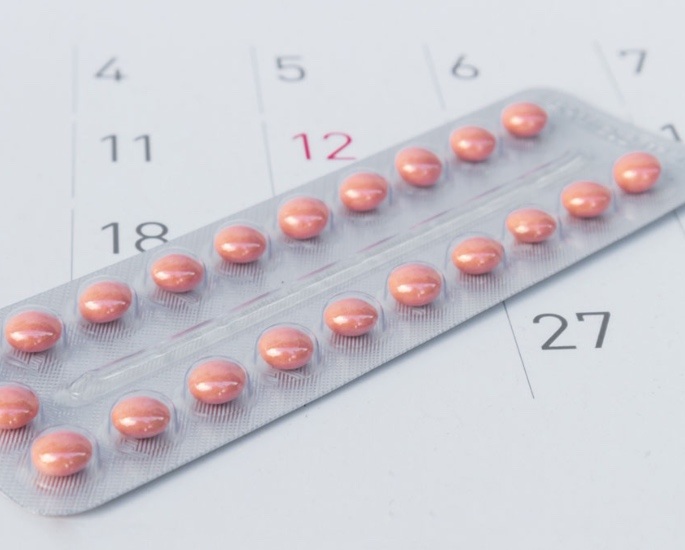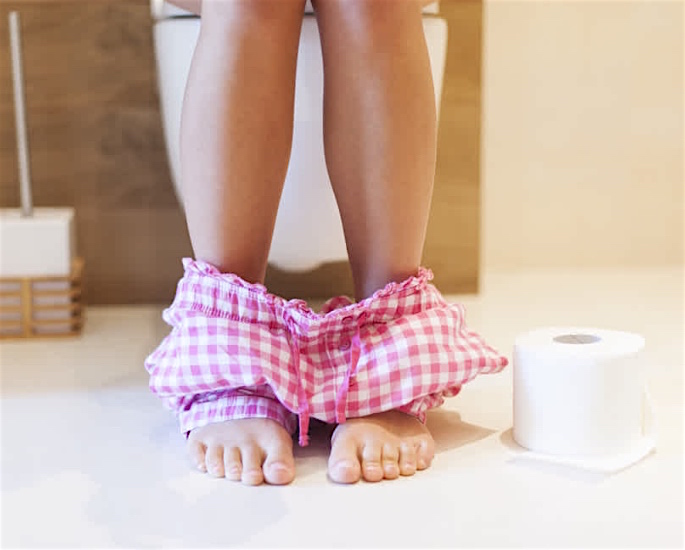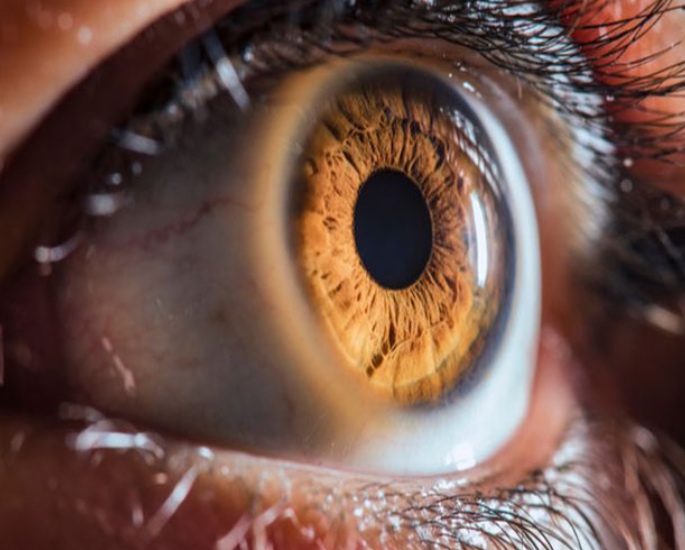Missing your period is a common negative effect
Using the combined oral contraceptive pill, popularly known as the birth control pill or simply the pill has negative effects as a means of female contraception.
While it is convenient for women and is often regarded as one of the most significant medical breakthroughs of the 20th century, it, unfortunately, carries with it several side effects which must be considered.
The birth control pill was approved by the FDA (Food and Drug Administration) on May 9, 1960, in the United States. In fact, within two years, 1.2 million American women were using the pill.
However, in the United Kingdom, it was introduced to the NHS in 1960. Despite this, it was only available for married women.
It was not until 1967 that the birth control pill was available to all women irrespective of their marital status.
Nowadays, the pill is used extensively by countless women across the globe.
Despite this, women are not entirely familiar with the possible side effects.
It is vital to note that the disadvantages differ from woman to woman as it depends on the individual’s body response.
We explore the negative effects of this long-term form of contraception which must be considered by women.
What are Birth Control Pills?
Birth control pills are an oral form of contraception which are used by women to prevent unwanted pregnancies.
The pill contains two artificial female hormones which are produced naturally in the ovaries, oestrogen and progesterone.
In order to get pregnant, the sperm must reach the egg and combine with it during the process of fertilisation.
However, contraception like the pill is designed to stop this process from happening.
It works to keep the sperm and egg apart by preventing the release of an egg during ovulation.
The pill also thickens the mucus in the neck of the womb. This acts as an extra protective layer to prevent the sperm from penetrating the womb to reach the egg.
Not only that, but it thins the lining of the womb. As a result of this, there is less chance of a fertilised egg entering the womb.
According to the NHS website, the birth control pill is more than “99% effective” at stopping pregnancies.
Usually, one pill is taken every day for a total of a 21-day period. Then a seven-day break is taken and during this week is when a woman menstruates.
After the seven days, the pill must be continued. Although some women prefer to take the pill during menstruation.
However, this must be consulted with your GP (General Practitioner) or nurse.
It is important to note that it is advised to take the birth control pill at around the same time every day.
There are numerous brands of the pill. They consist of three types:
- Monophasic 21-day pills – Most common type with each pill containing the same amount of hormones. Take one for 21 days then no pill for the next 7 days.
- Phasic 21-day pills – 2/3 sections of different coloured pills with each section containing different hormones. Take one for 21 days and no pill for the next 7 days.
- Every day (ED) pills – 21 active pills with 7 inactive pills. 2 types of pills which must be taken in the right order.
Spotting between Periods
Spotting, also known as breakthrough bleeding, refers to the occurrence of vaginal bleeding between menstrual cycles.
However, it differs from regular period blood as it is a brown discharge or lighter bleeding.
In fact, spotting between periods is one of the most common side effects of taking the pill. It often occurs in the initial six months of taking the pill.
It occurs because the pill changes the level of hormones in the body while the uterus is adjusting to a thinner lining.
Spotting can be reduced and eventually prevented if you take the birth control pill every day and at the same time as recommended.
However, if spotting does not stop after six months then it is important to consult your doctor.
This is because it may indicate underlying health conditions. These include:
- Uterine fibroids
- Pelvic inflammatory disease (PID)
- Endometriosis
- Sexually transmitted diseases.
Headaches and Migraines
Due to the hormones, oestrogen and progesterone present in birth control pills, headaches and migraines may occur more frequently.
This occurs because of changes in the female sex hormones, estrogen and progesterone which can trigger head pain.
In particular, women who are sensitive to the estrogen in the pill may notice that their headaches are more severe at certain times during their menstrual cycle.
If a woman takes ED pills, on the days they take the inactive pills a sudden drop in their estrogen level can occur.
As a result of this, headaches and migraines are more likely, therefore they are reacting to hormonal swings.
Also, if you suffer from migraines, using a birth control pill containing estrogen can lead to strokes.
Therefore, it is imperative that a person suffering from migraines consults their doctor when considering taking the pill.
They will be at greater risk if they smoke, have high blood pressure, a family history of suffering from strokes, are overweight and over the age of 40.
If you are someone who falls under these criteria then it is important to consider the risks.
Meanwhile, if you notice an increase in headaches, while this is not detrimental to health if new symptoms arise then you must speak to your doctor.
Breast Tenderness
While this is not damaging to health, experiencing tender breasts can be quite uncomfortable for women.
This tends to occur soon after a woman initially begins taking the birth control pill.
As well as increased sensitivity, the breasts can also grow larger due to the hormones, estrogen and progestin present in the pill. However, this side effect is usually temporary.
In some cases, a person experiences severe breast pain or even other changes like lumps.
In this instance, the pill causes benign lumps to form and while 80% of breast lumps are they must seek medical advice.
Nausea
Another negative effect experienced when initially taking the birth control pill is feeling nauseous.
This is, in fact, quite common with many types of oral pills.
In particular, the hormone, ethinyl estradiol which is found in the pill contributes to feelings of nausea. This gives you the urge to vomit.
The feeling can occur temporarily after taking each pill or even throughout the day.
Undoubtedly, it can be a nuisance as it makes a person feel sick, however, this feeling can be reduced depending on when you take the pill.
For example, taking the pill before or after food means your body will digest the food at the same time as the pill metabolises the hormones.
Also, taking the birth control pill at bedtime can help reduce this feeling as it makes it easier to tolerate.
Again, nausea should subside. However, if it persists then it is time to consult with an expert healthcare adviser.
Mood Changes
Changes in mood can be a consequence of a change in hormone levels. Hormones play a significant part in a person’s mood.
Since the pill impacts one’s hormone levels due to the presence of artificial hormones present in the pill namely progestin and estrogen, it can lead to mood changes.
In this instance, a woman may feel low, somewhat depressed and anxious with this form of contraception.
Understandably, mood changes are quite common and normal. However, if you notice an obvious change in the way you feel after taking the pill then it could be due to the change in hormone levels.
While this side effect is not common it does still affect 4-10% of women.
Remember this negative effect can be minimised by switching to a different type of birth control pill.
If that still does not work, then it is time to consider using a form of contraception which does not affect your hormone levels.
Weight Gain
Have you ever noticed an increase in weight after you started taking the pill?
If yes, this is because the hormones in birth control pills can lead to an increase in your weight.
The pill may cause your body to retain more fluid than it usually would and this is thanks to estrogens and progestins.
These hormones typically retain more fluid around the hips and in breast tissue.
However, do not worry. Usually, this form of weight gain is temporary. This means once your body has adjusted to the pill, your weight should not continue to increase.
This is, of course, subject to the fact that your calorie intake has not increased in this time.
So, remember it is probably just extra water as opposed to extra fat in the body.
Libido Decrease
Experiencing a lower sex drive than usual is another negative effect of the birth control pill.
The reason behind this lack of interest in sex is due to the impact on androgens in the body.
The pill reduces the body’s production of androgenic hormones such as testosterone.
It is these hormones which regulate your desire to engage in sexual activity. Therefore, you may experience a noticeable reduction in your libido.
Again, this side effect is not the most common but this does not mean it cannot happen to you.
If it does decrease your libido then consider switching to a progestin-only pill or a non-hormonal form of contraception.
It is also worth talking to your doctor about the same to seek an expert opinion.
Missing Menstruation
Missing your period is a common negative effect of taking the birth control pill.
Typically, this occurs because of how estrogens and progestins impact your menstrual cycle.
The pill works to prevent ovulation which means the uterus is no longer required to produce a protective lining.
As a result of this change, a woman may get a lighter period or completely miss her period.
In other cases, some women get their periods earlier than expected after starting the pill.
If you experience the former, then it is best to take a pregnancy test before commencing with the next set of pills.
This is because it will eliminate the slight chance of being pregnant.
Moreover, like the above, missing menstruation should stop after three to six months. After this time, your periods should regulate.
Vaginal Discharge
Although vaginal discharge is common for women who do not take the birth control pill, it can be affected when you start the pill.
This can occur in two ways:
- A change in the discharge
- Increase or decrease of vaginal lubrication
The latter, although not hazardous to health, can affect a woman if she wishes to engage in sexual intercourse.
In particular, if you experience vaginal dryness after taking the pill, it is recommended to use lubrication to make sex more comfortable.
Whereas, a change in the nature of the discharge in terms of colour and odour could potentially point to an infection.
Thus, be sure to speak to your doctor if you have any worries about this.
Thickening of the Cornea
This is a very rare negative effect of birth control pills. Nevertheless, it can cause minor changes in the eyes.
The cornea can thicken due to the presence of artificial hormones in the pill.
This is especially a problem for women who wear contact lenses. They may notice the lenses no longer fit after using this form of contraception.
If you notice this change then you must contact your ophthalmologist. They will be able to prescribe other lenses which will be more comfortable.
Also, a person may have an increased risk of dry eye syndrome (DES) which will leave their eyes feeling itchy and vision blurred.
According to studies, this side effect is as low as one in 230,000 so the chances are unlikely but cannot be completely dismissed.
If you experience DES then consult with your doctor. You must inform her/him about your birth control and the changes.
On the whole, birth control pills are usually safe to use to prevent pregnancy. However, considering the negative effects above is important.
It is important to note that the risks mentioned above are increased if:
- You are a smoker
- Have diabetes
- Have heart disease
- A tendency to form blood clots
- Have a history of breast/endometrial cancer
- Are obese
- Have high cholesterol
- Have high blood pressure
As well as this, birth control pills can cause serious side effects like blood clots, heart attack or stroke. However, these risks are extremely rare.
Remember before committing to any type of birth control pill consider the negative effects and listen to your body.
If a particular birth control pill does not suit you, change it to another based on your doctor’s advice.
If that still does not work then listen to your body and stop using the pill completely.








































































